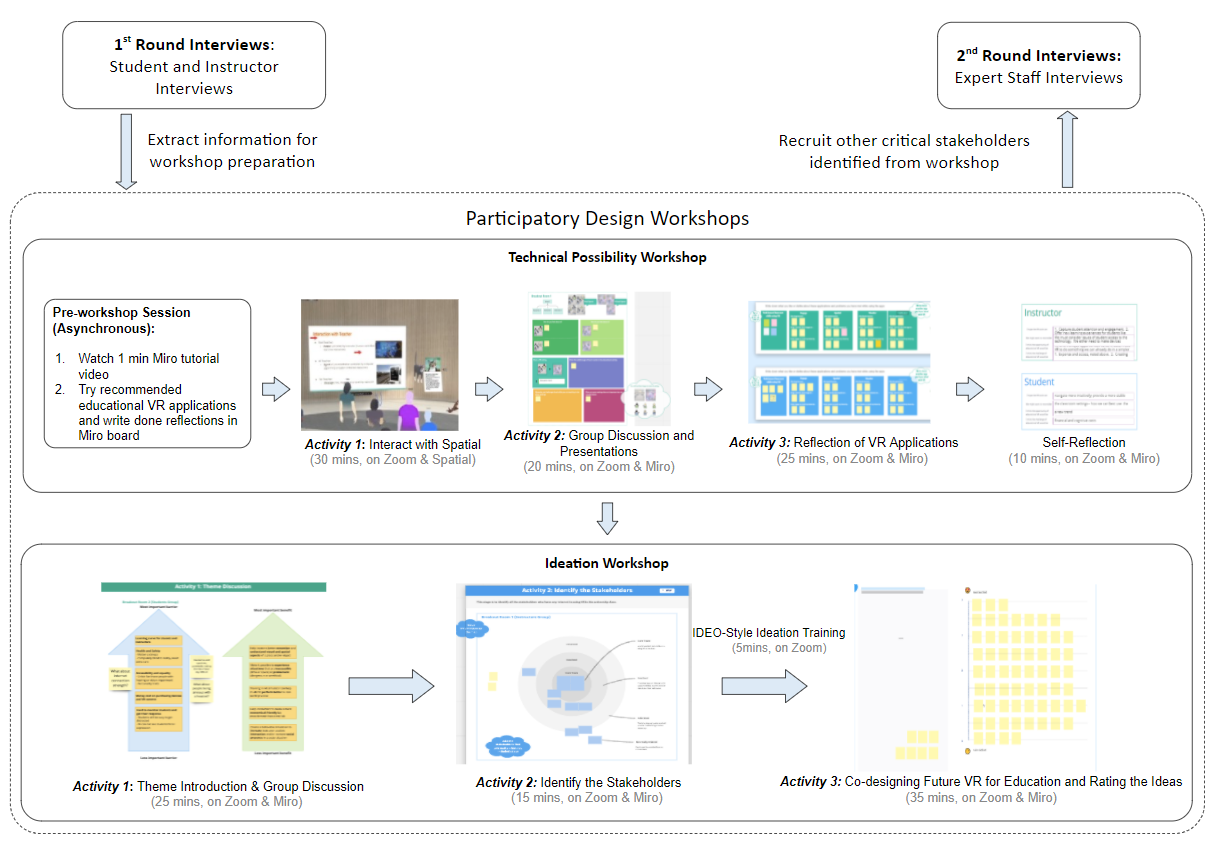How Will VR Enter University Classrooms? Multi-stakeholders Investigation of VR in Higher Education
Abstract: VR has received increased attention as an educational tool, especially with the emergence of the Metaverse. Most prior research on educational VR reports on applications or systems designed for specified educational or training objectives. It is crucial to understand current practices and attitudes across disciplines from a holistic view to extend the body of knowledge in terms of VR adoption in an authentic setting. Taking a higher-level perception of people in different roles, w}e conducted a qualitative analysis based on 23 interviews with major stakeholders and a series of participatory design workshops with instructors and students. We identified the stakeholders who need to be considered for using VR in higher education and highlighted the challenges and opportunities critical for VR current and potential practices in the university classroom. Finally, we discussed the design implications based on our findings. This study contributes a detailed description of current perceptions and considerations from a multi-stakeholder perspective, providing new empirical insights for designing novel VR and HCI technologies in higher education.
Cite this work: Qiao Jin, Yu Liu, Svetlana Yarosh, Bo Han, Feng Qian. How Will VR Enter University Classrooms? Multi-stakeholders Investigation of VR in Higher Education. The 2021 ACM CHI Conference on Human Factors in Computing Systems (CHI’22). https://dl.acm.org/doi/pdf/10.1145/3491102.3517542

